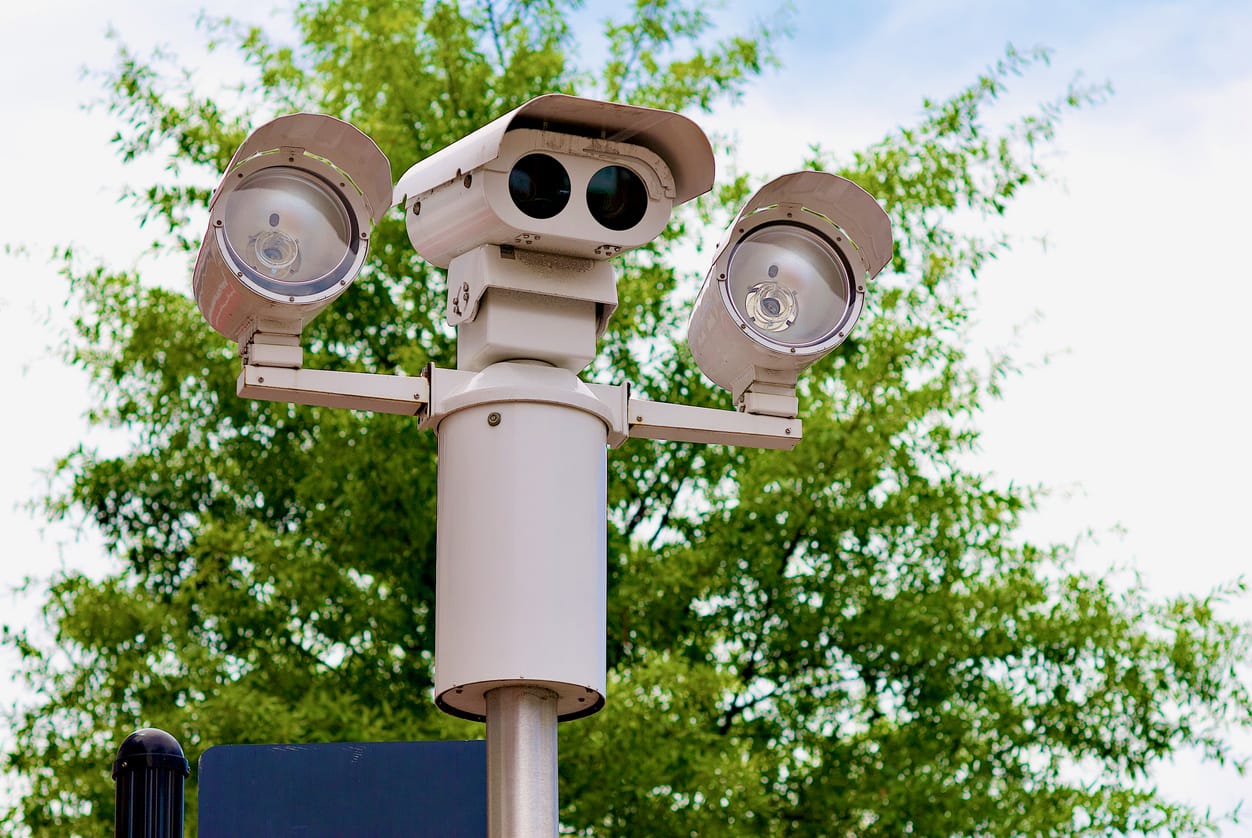In an unparalleled cyberattack, more than 15,000 car dealerships in the US and Canada suffered significant interruptions to their business operations. This blog article explores the specifics of the ransomware assault, its immediate effects, and its wider ramifications for the car industry. The extent and magnitude of cyberattacks targeting crucial business sectors have significantly increased as a result of this incident. The weaknesses present in contemporary digital infrastructures were brought to light as dealerships struggled to keep operations running smoothly, with repercussions felt across the supply chain from sales floors to service centers.
The dealer management systems (DMS), which are the technical foundation of dealership operations, were the explicit focus of the attack. The cyberattack not only prevented services and sales from continuing, but it also exposed private consumer data to possible exploitation by taking down these systems. The aforementioned instance serves as a poignant reminder of the paramount need of implementing strong cybersecurity protocols to safeguard against intricate cyberattacks. We will learn more about the incident’s tactical nature, the affected dealerships’ response, and the lessons that may be applied to strengthen against such vulnerabilities in the future.

This section goes into great depth on the hack that targeted CDK Global on June 19, showing both the attack’s complexity and how it directly affected dealership operations across the country. Through a closer look into the particular technologies that were compromised, we may better comprehend how intricately intertwined digital systems are in contemporary car dealerships. Moreover, the direct consequences on day-to-day activities underscore the susceptibility of digital infrastructures to cyber-attacks.
Initial Breach and Ransomware Deployment: The incident started with a security system compromise at CDK Global, which allowed ransomware to be released later. This malicious malware encrypted data and rendered vital systems unusable as it swiftly propagated throughout the network. Dealerships that depended on these systems for handling everything from sales processing to inventory control were unable to get vital digital resources.
Systems and Operations Affected: The dealer management system (DMS), a key piece of software that facilitates various dealership operations, was the attack’s main target. Dealerships were forced to switch to manual operations due to locked DMS systems, which resulted in major delays and disruptions. This has an influence on customer service and communication channels in addition to sales and inventory management.
Immediate Response by CDK Global and Dealerships: CDK Global swiftly assembled a group of cybersecurity specialists in reaction to the attack in order to stop the intrusion and start the decryption and recovery procedure. Dealerships hurriedly put backup plans into place at the same time, involving offline customer support strategies and manual record-keeping in order to preserve some semblance of operational continuity.
Every one of these points clarifies a distinct aspect of the assault, giving insight into the intricate workings of cybersecurity in the automobile sector and the wide-ranging effects of such disruptions.

Not only did the recent hack on CDK Global cause operational disruptions, but it also revealed serious weaknesses in the automobile sector. This section examines the sector’s wide-ranging and potentially long-lasting effects, emphasizing the necessity of more robust security measures as digital integration becomes more widespread. The implications for finances and operations go well beyond the short-term disruptions, indicating that significant changes in strategy would be required.
Financial Impact: Although it is difficult to estimate the direct financial effects of the hack at this early stage, they are anticipated to be significant. Dealerships may suffer from missed income and delayed transactions as a result of system outages, which might negatively impact their financial situation. Furthermore, the expenses linked to system restoration and subsequent preventative actions may put further pressure on budgets, affecting profitability in the short to medium run.
Increased Vulnerability to Cyber Threats: This event serves as a clear warning of how vulnerable the automobile sector is becoming to cyberattacks. Dealerships are becoming more and more vulnerable to hackers as a result of their reliance on linked systems and digital tools for operations. The increasing frequency and sophistication of attacks may force industry participants to review and reinforce their cybersecurity procedures.
Shifts in Operational Technologies: Dealerships’ approach to operating technology is probably going to change significantly in reaction to such vulnerabilities. Investments in cybersecurity solutions may soar due to the demand for reliable, secure systems, which might encourage the use of more recent, safe technology. This might hasten the digital transformation of the sector as a whole, but its implementation must be done carefully to prevent the creation of new risks.
Long-Term Strategic Changes: The car industry may have to change its long-term strategic methods due to the wider consequences of persistent cyber threats. To reduce risks, this may entail reconsidering vendor relationships, such as depending too much on a single software supplier, and broadening the variety of technological sources. Additionally, the sector can witness increased dealership cooperation in creating common cybersecurity standards and policies.
Each of these aspects emphasizes the intricate choices and problems that the automobile sector must make in the aftermath of growing cybersecurity and digitalization. The industry’s resilience and future competitive position will probably be shaped by its capacity to adjust to these difficulties.

Following a devastating attack, the automobile sector experienced major operating difficulties. Dealerships frantically tried to keep things running as CDK Global toiled away on recovery and precautionary measures. This section explores the industry’s immediate crisis management activities as well as ongoing attempts to improve system security.
Adoption of Manual Processes: Many dealerships turned to manual procedures for car sales and customer service when their digital systems were breached. Even though it was difficult, this change was necessary to maintain services and sales and avoid total business shutdowns. Workers demonstrated resiliency and adaptability in crisis management as they swiftly adjusted to non-digital record keeping and customer communication techniques.
CDK Global’s Immediate Response: Assessing and containing the breach was CDK Global’s first responsibility in order to stop more harm. In order to safeguard user data, the organization quickly put into place a multi-tiered recovery plan, beginning with the isolation of impacted systems and the distribution of emergency upgrades. Their prompt action was essential in halting the ransomware’s spread.
System Restoration and Testing: Dealer management systems (DMS) repair was a painstaking procedure. In order to maintain system integrity, CDK Global worked with cybersecurity specialists to repair vulnerabilities and gradually restore their services. Every upgrade was followed by extensive testing to ensure that all systems were safe and functional before they were brought back online.
Strengthening Cybersecurity Measures: Since then, CDK Global has raised its cybersecurity spending in reaction to the incident. This entails consistent software upgrades, improved network traffic monitoring, and the use of stronger encryption techniques. To strengthen frontline defenses, dealership employees have also received cybersecurity best practices training.
Future Preparedness Plans: In addition to the impacted dealerships and CDK Global, additional comprehensive backup procedures have been put in place. To guarantee that operations can continue with the least amount of disturbance in the case of future intrusions, these plans place a strong emphasis on both prevention and quick reaction. These new steps are centered around improved IT infrastructure and open lines of communication.
The quick switch to manual operations across thousands of dealerships due to the hack on CDK Global is evidence of the industry’s agility. But the event also made clear how important it is to keep advancing cybersecurity procedures and readiness. The automobile industry is attempting to strengthen itself against an increasingly digital threat scenario by combining quick response, thorough recovery plans, and proactive preventive measures.

In addition to causing serious disruptions, the recent assault on American car dealerships served as a sobering reminder of the weaknesses in the sector. The aforementioned instance highlights the pressing requirement for strong cybersecurity protocols and well-thought-out risk management strategies. It emphasizes that cybersecurity is now a wide operational necessity that impacts every facet of the automobile sector, rather than just being an IT concern. In order to protect themselves from future attacks, dealerships and associated companies must now give continual cybersecurity protocol improvement top priority. Industry executives are being urged by this event to fortify their defenses and make sure that the industry’s digital revolution doesn’t outstrip its capacity for self-defense.

One of the best options for automobile shipping throughout the US is Ship A Car, Inc. We provide unparalleled service that is customized to fit your unique needs, regardless of the make, model, and size of your car or where you live in the United States. Our staff has a wealth of knowledge and makes use of cutting edge technologies to guarantee the efficient and safe transportation of your car. Selecting Ship A Car, Inc. means that you’re choosing a hassle-free shipping experience with reasonable rates and dependable delivery dates. Call us at (866) 821-4555 to discuss your automobile transportation needs or to find out more about our offerings. Our committed transport consultants will help you every step of the process and are prepared to provide you the best shipping quote available.
Q: What is the impact of cyberattacks on vehicle shipping times?
A: Cyberattacks have the potential to cause disruptions in logistics and result in lengthier shipment delays, particularly in the event that dealerships adopt manual procedures.
Q: How can dealerships secure their operations against future cyberattacks?
A: Dealership operations may be made more safe by putting in place stringent cybersecurity measures and conducting system audits on a regular basis.
Q: Why choose Ship A Car, Inc. during such disruptions?
A: Ship A Car, Inc. is able to make sure car delivery that is both dependable and on schedule, even in the midst of industry-wide problems, thanks to its comprehensive contingency preparations.




